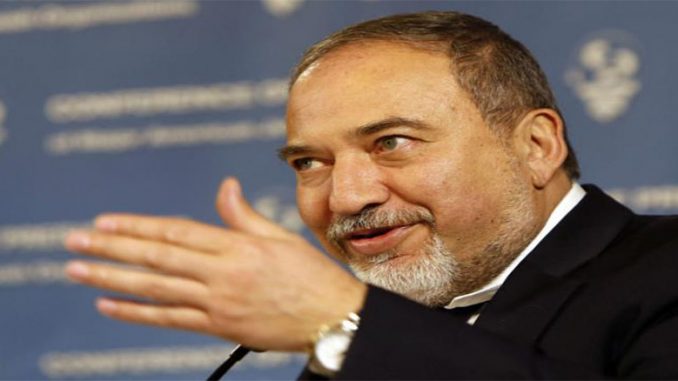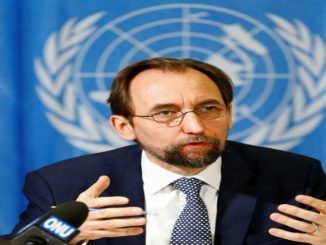
Israel’s defence minister says his country is ‘really open to cooperation’ with Arabs, in what seems to be an attempt to latch on to sides in the ongoing diplomatic crisis.
Israel Defense Minister Avigdor Lieberman said on Monday that the diplomatic spat between Qatar and some of its Gulf neighbours could provide a new opportunity for Israeli cooperation with Arab states, in what seems to be an attempt to latch on to one side of the diplomatic row.
Addressing Israel’s Knesset in a televised question and answer session, Lieberman said the decision by Saudi Arabia, Bahrain, the UAE, Egypt, Yemen and the Maldives to cut ties with Doha over its alleged support of terror showed that a new realisation was taking place.
“Arab states understand that the danger is not Zionism but terrorism,” Lieberman said.
“We saw the United States president visit Saudi Arabia and he spoke first and foremost about a coalition against terror,” he added, referring to Donald Trump’s trip last month.
“The state of Israel is really open to cooperation. The ball at the moment is with the other side,” he said.
Tensions between Saudi Arabia and Qatar came to a head on Monday when Riyadh cut official ties with its neighbour, citing “gross violations committed by authorities in Qatar”.
The Saudis also accused Doha of harbouring “terrorist” and sectarian groups that aim to destabilise the region – an allegation it vehemently denies.
But the Israeli official’s comments, which seemingly latch on to the camp of the Saudis and Emiratis, come as no surprise.
Just days before Monday’s events, emails leaked from the inbox of UAE’s ambassador to Washington revealed a “growing link” between the UAE and a pro-Israel think-tank, the Foundation for Defense of Democracies (FDD).
The hacker group, which calls itself “GlobalLeaks,” said the emails “reveal how millions of dollars were used to hurt [the] reputation of American allies and cause policy changes,” especially in regards to Qatar, Turkey, Israel, Egypt and the Muslim Brotherhood group as a whole.
Included in the leaked exchanges was harsh criticism of Qatar’s support for Palestinian groups and the Doha-based al-Jazeera news network.
‘Baseless fabrications’
Responding to the unprecedented decision on Monday, Qatar described the move as clearly pre-meditated and “based on baseless fabricated claims”.
“Qatar has been the target of a systematic incitement campaign that promoted outright lies, which indicates that there was a prior intent to harm the state,” the foreign ministry statement said.
It is clear that the media campaign against Qatar has failed, especially in Gulf nations, which explains this escalation,” it said, adding, “the fabrication” of a media crisis used to increase pressure against it is evidence that there are “no legitimate causes to take the decision to cut ties”.
The escalation is likely to have wide-ranging consequences, not just for Qatar and its citizens but around the Middle East and for Western interests.
Monday’s announcement came less than a month after US President Donald Trump visited Saudi Arabia to cement ties with Riyadh, where he called for a united front among Muslim countries against extremism.
It also followed weeks of rising tensions between Doha and its neighbours, including Qatari accusations of a concerted media campaign against the country and the alleged hacking of the Qatar News Agency.



